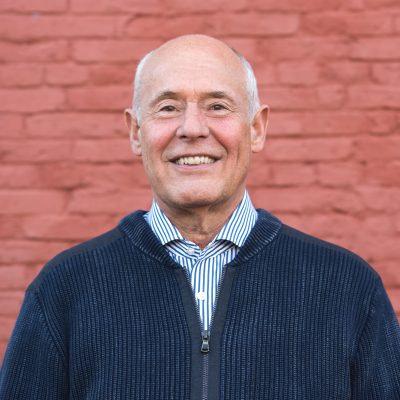Interview with Dr. Joe Helms, President, Acus Foundation


In this post, Brad Erickson, Acting Executive Director of Acus Foundation, interviews Dr. Helms about the innovative use of acupuncture in the military.
BE: What can you tell me about the particular medical needs of military patients?
JH: The leading reasons military patients seek treatment are 1) back pain, 2) neck pain, 3) headache, 4) stress, including insomnia, anxiety, focus, and all the forms of post-traumatic stress, and 5) all other forms of pain.
BE: People might be surprised that back and neck pain are the top problems. Why is that?
JH: Soldiers carry 75 pound kits plus special gear such as medical equipment, communications gear, and weapons. While carrying these heavy kits they are climbing, crawling, being shot at, and medics are carrying injured bodies. Flyers are in constant vigilance, looking backwards-and-forwards and side-to-side, which results in what they call “cobra neck.” All of these factors place a tremendous amount of stress on the backs and necks of service members.
BE: What are the opportunities for medical personnel to use acupuncture in the military and why do you advocate a “think acupuncture first” approach?
JH: I’ll take you through the opportunities for acupuncture in the military but I also want to say that I don’t advocate that military medical practitioners think acupuncture first in every instance. In a battle emergency situation, the first priority is to get the wounded to safety and carry out life-saving interventions. Clearly, in such cases I would not advise acupuncture first.
BE: What about when the wounded person and field medics are no longer under fire?
JH: While they are waiting for medevac, they can use auricular acupuncture to control pain without the complications of administering high doses of pain killers. Then, when at the base camp, and the patient is reassessed, and, if appropriate, acupuncture can be used to reduce pain and stress, restoring a sense of calm following the trauma of injury. When stabilized at an intermediate facility in Kuwait or Germany, acupuncture can be combined with conventional therapy to treat pain, concussion symptoms, and to restore function. You can’t always perform complex surgery at these facilities and some wounded personnel are flown to Walter Reed or another US facility. While there, they may be subject to a series of surgeries in a process that can be very demoralizing. At this stage acupuncture can be used to keep pain at a minimum and also provide relief from stress and psychological trauma.
BE: Do opportunities to use acupuncture end at the hospital?
JH: No, once patients are in a rehabilitation or Veterans Health Administration center, we are dealing with chronic pain, functional rehabilitation and recovery from psychological trauma. All three of these conditions respond positively to acupuncture. In garrison, the everyday traumas that bring patients to urgent care or follow-up visits is also fertile ground for the integration of acupuncture into overall treatment strategies. It is beneficial to be able to offer acupuncture as a potential unique intervention or to complement conventional health management.
BE: Now that the Acus team is carrying out acupuncture training for physicians at Nellis Air Force Base, how is that changing military patient care?
JH: Our experience to date at Nellis has been very promising because there is a growing corps of practitioners that allow acupuncture to be offered at any appointment without waiting for a referral to an outside acupuncture clinic. This means that acupuncture can be part of the first line of treatment options rather than used as a last resort. This is what we mean by Think Acupuncture First.
BE: But you aren’t claiming that acupuncture is a cure-all?
JH: No. What I am saying is that a skilled acupuncturist will find many creative opportunities to assist whatever processes are being undertaken in ways that complement other interventions and therapies to enhance patient comfort and wellbeing and improve health outcomes.
